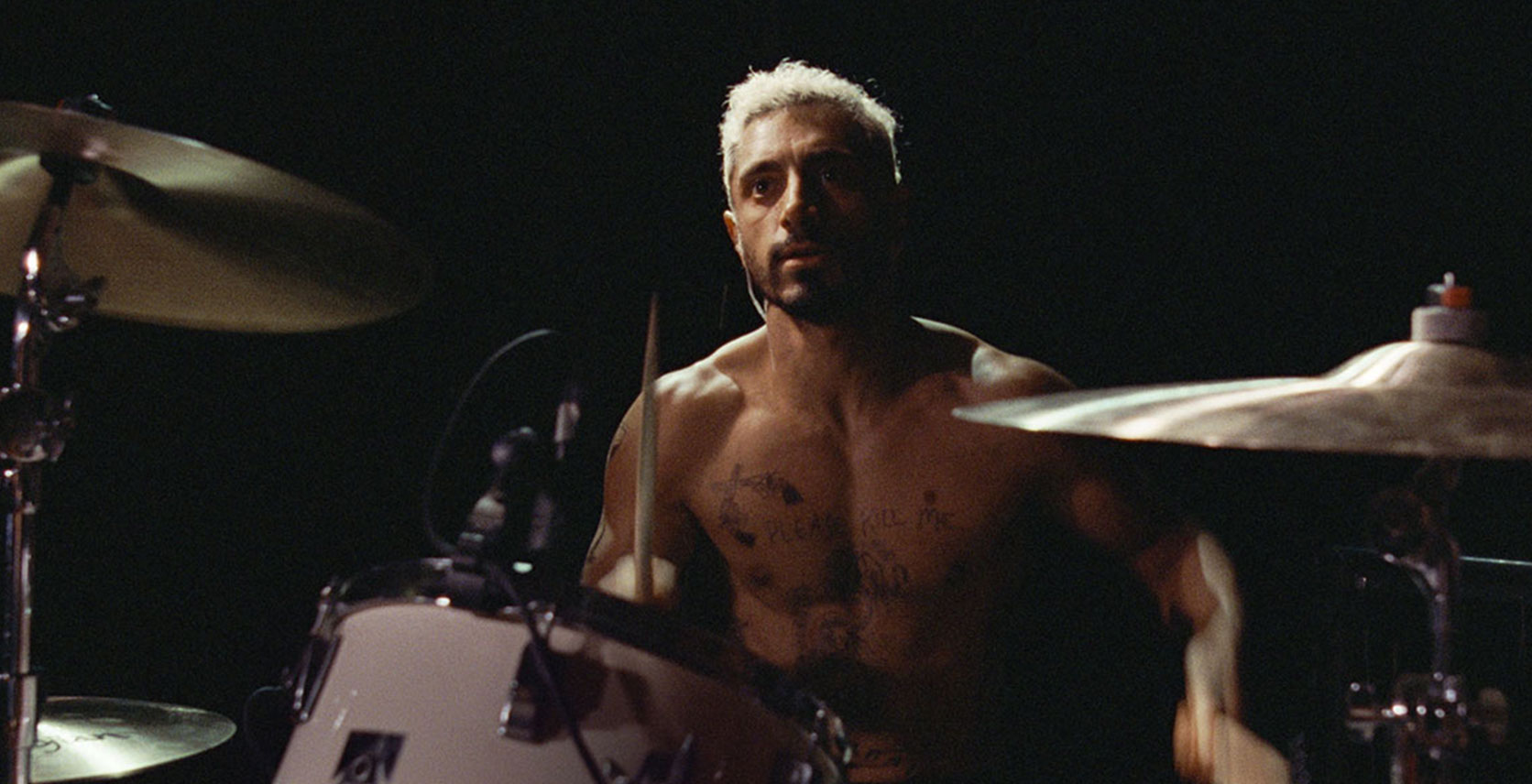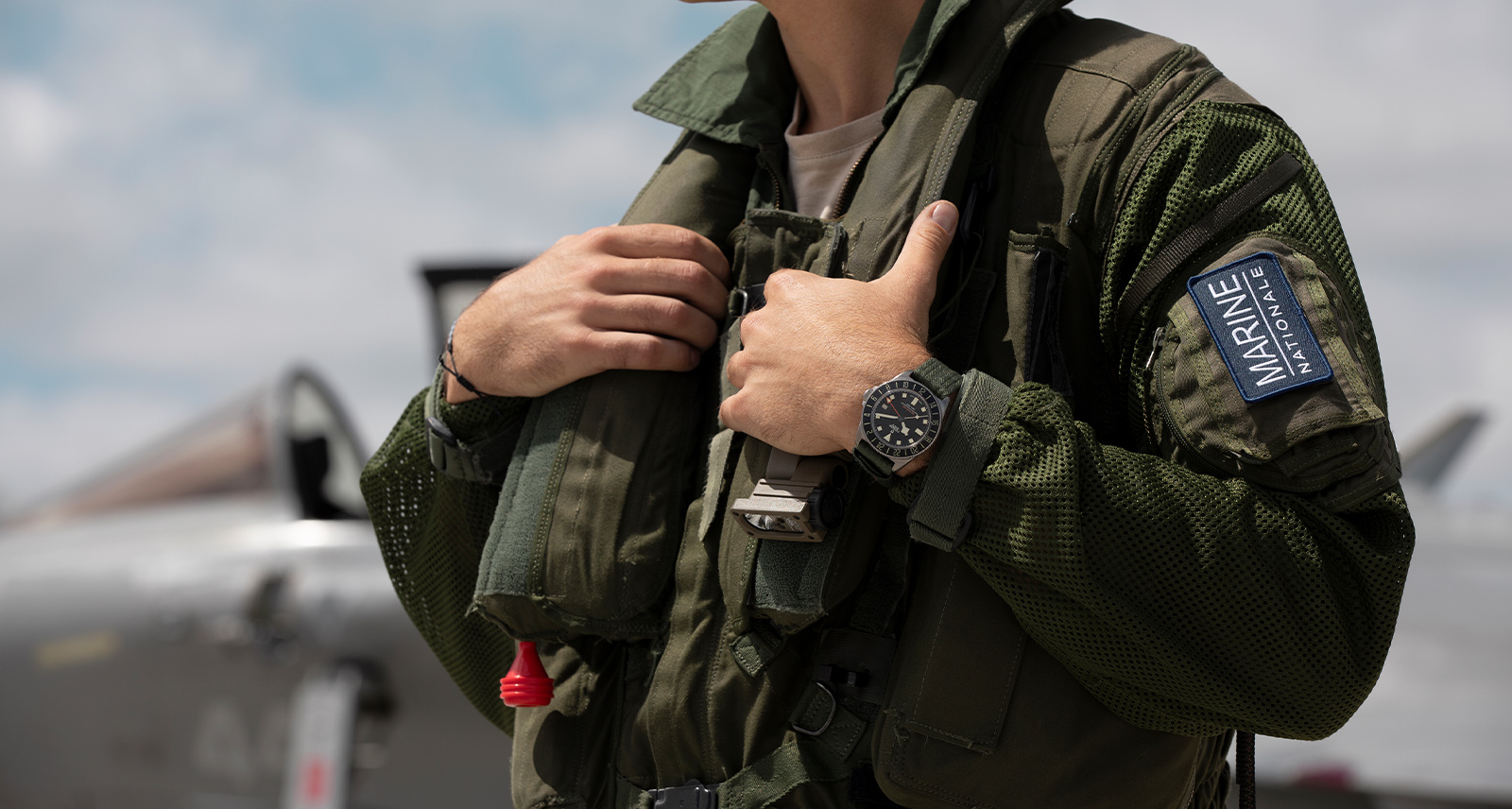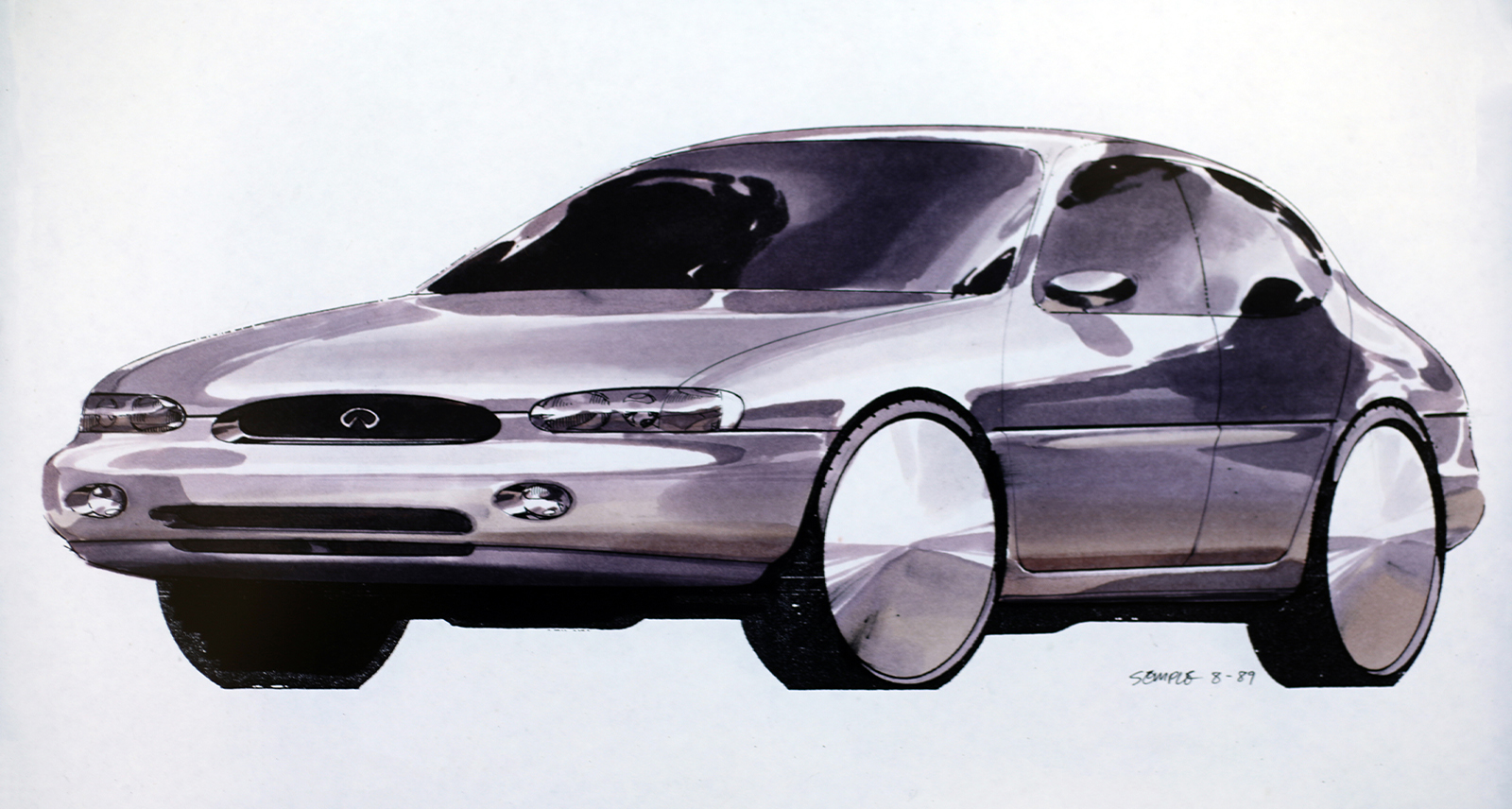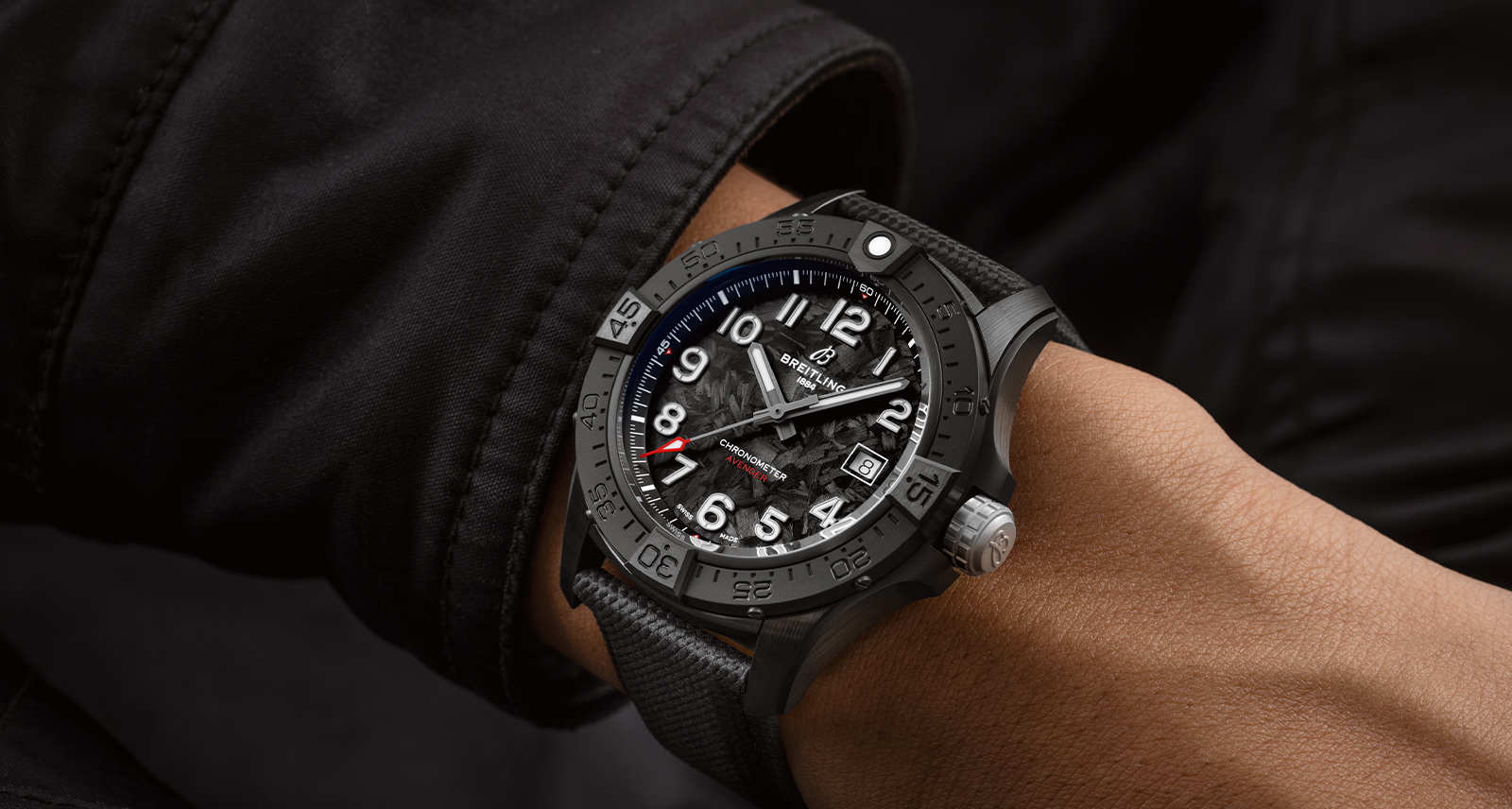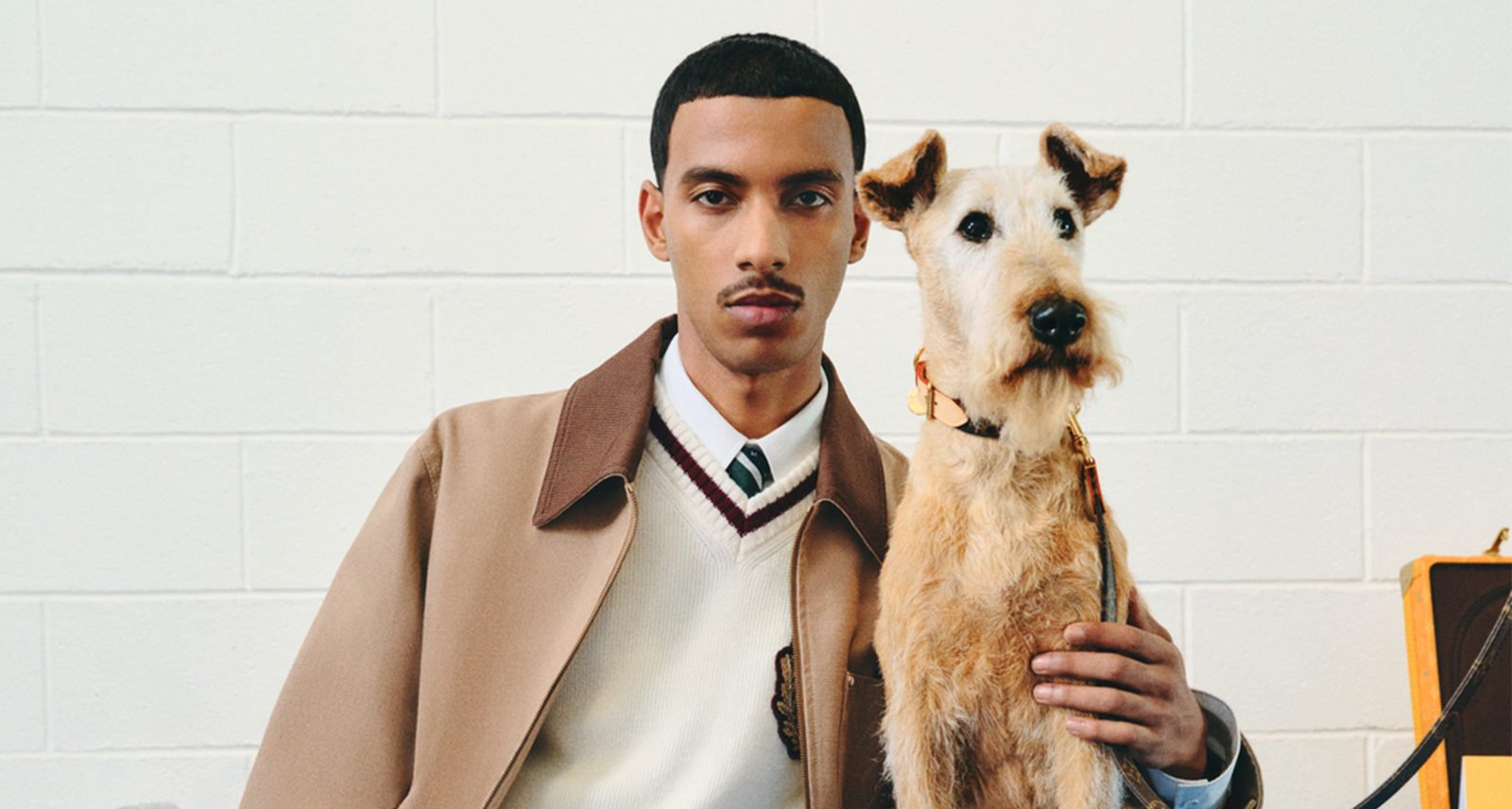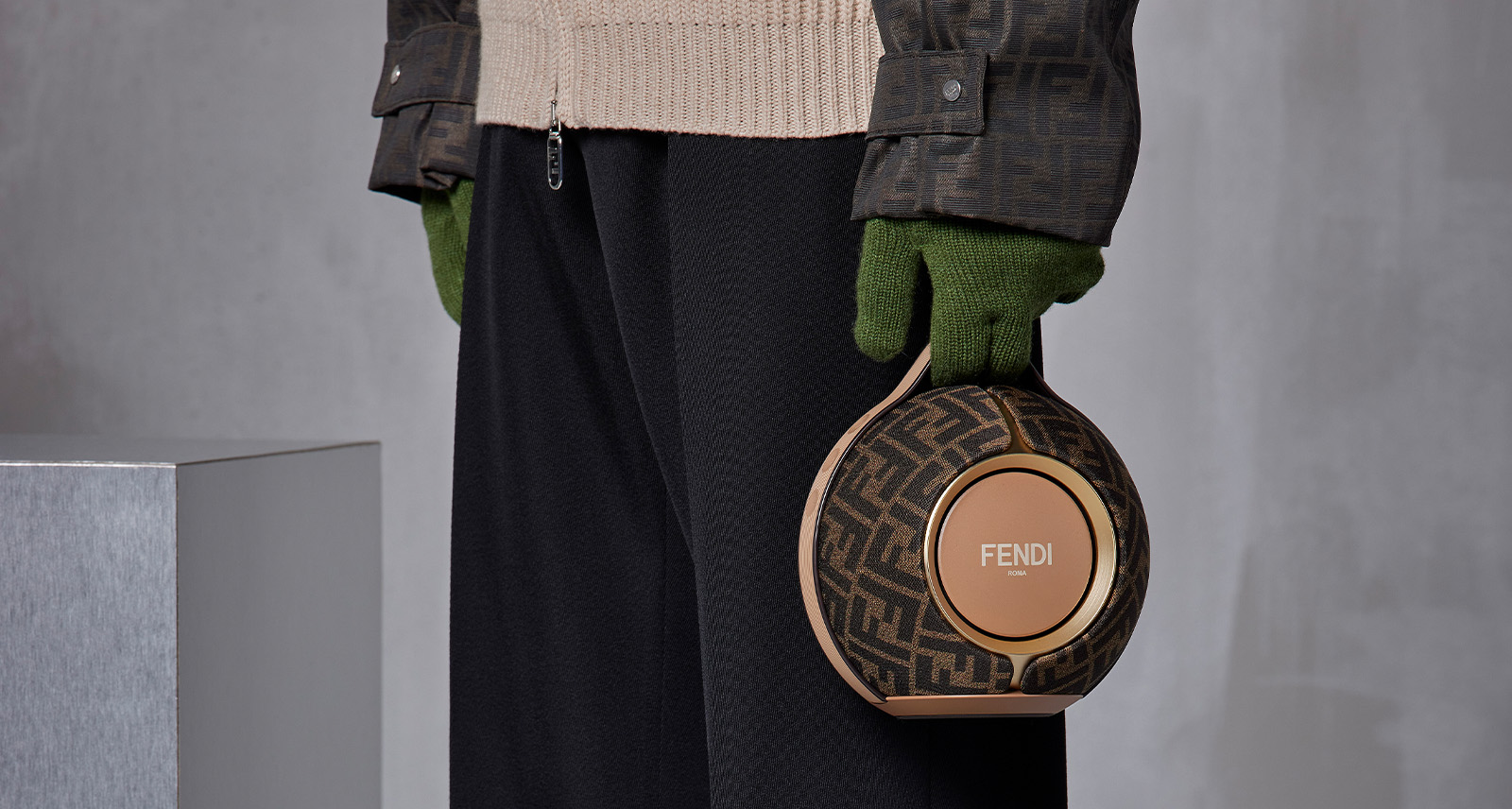Riz Ahmed on His “Life-Changing” TIFF Film ‘Sound of Metal’
According to studies, drummers experience hearing loss at a higher rate than any other type of musician. Metallica’s Lars Ulrich has famously been dealing with tinnitus for the better part of his career, and it’s not just limited to metal drummers either; the affliction forced Phil Collins to hang up his sticks back in 2011.
That issue, of music-induced hearing loss, is at the heart of Sound of Metal, the feature debut from Place Beyond the Pines writer Darius Marder, starring Riz Ahmed as Ruben, drummer for a metal duo called Blackgammon. (Technically, they’re more “industrial punk,” according to Marder.) When his hearing begins to rapidly deteriorate while on tour with his bandmate/girlfriend (Olivia Cooke), Ruben is destabilized, ultimately finding compassion and acceptance in the local deaf community.
With a sound design that puts you, quite literally, in Ruben’s head, from the shrill ring of tinnitus to the increasingly muffled speech as his hearing gets worse, the movie is a sensory assault in its own right — you may have heard that an audience member had to be taken to the hospital after having a seizure in the middle of the TIFF premiere last Friday night. (“Which was probably induced by the movie,” admitted Marder, who added that he’s since been told the person is okay.)
Ahmed’s performance is equally visceral — a jittery, gutting, vulnerable portrait of a man trying to figure out what comes next. It just might be the rising star’s most impressive performance to date — and if you’ve seen either Nightcrawler or The Night Of, you know that’s saying something. “I think it would be a crime against humanity if Riz isn’t nominated for that role,” Marder told us, and we’re inclined to agree.
Sharp sat down with Ahmed during TIFF to talk about his new movie, his career, and the intense preparation he underwent to learn both drumming and sign language for the film.
You’ve described this as a “life-changing role” — what was something you learned about yourself from this experience?
I mean, every role you do is life-changing. Because acting, at its best, is an opportunity to work through aspects of your own personality. I think that’s often what drives the creative instinct, to untangle things within your sense of self. That’s why I’ve always written lyrics, for example. I think what was specifically powerful about this was just that it was such a daunting and immersive preparation experience. I’ve always been someone who overprepares, and I’ve always been someone who really thinks through their choices.
And listen, there are good things that come from that, but I’ve personally found that I was reaching a place in my work where I was pushing up against the limits of that approach. Of a frontal lobe approach. You can’t play the drums from your frontal lobe; you have to go from an instinctive, deep, kind of primal place. You can’t communicate sign language from the frontal lobe. Because it forces you to communicate with your entire body and express and emote in a much more physical way. So all these things were pushing me out of my comfort zone, pushing me out of my frontal lobe and my thinking brain. So many things to think about, such little time to shoot in meant I just had to surrender to the process, and I think that’s what I took away from this experience: understanding the power of surrender. The power of facing your vulnerability as an actor.
And I think that’s interesting, because that’s also what the film’s about, right? The film’s about surrendering to circumstance, the film’s about trying to find strength in your vulnerability. It’s weird, I always find that anything that you ever act in, the process that you go through as an actor to deal with that role always ends up mirroring in some way the journey of the character in that story. So if that’s not too long-winded and pretentious a response… [Laughs.] That’s the way in which it was quietly life-changing. It was about surrender.
“When you’re told you don’t belong somewhere, you’re forced to become a chameleon. That happened to me socially growing up, and I think that’s happened to me similarly as an actor.”
Just how intense was the preparation for this role?
I was playing drums every day for about two and a half hours with my drum teacher Guy Licata, and I was also signing with my sign instructor, who’s a key figure in the New York deaf community, Jeremy Stone, also known as JLS. We were signing together every day for an hour and a half. And I did that for seven months. Then there was also all the stuff you’d normally do preparing for a role, doing research and trying to get under the skin of the text. Spending time with Darius, spending time with Olivia. So it was about seven months of prep, and then it was quite a short shoot.
What took longer for you to get comfortable with: the drumming or sign language?
They were both challenging in different ways. In a way, actually, the key to both of them is the same: which is, letting your body take over. You can’t think your way to expressing yourself through drums, and in sign language, you have to let your body take over. Of course, in order to get to that point, you’ve got to drill all of those pathways into your brain, so when you go into a kind of autopilot, your body takes you to the right place. That’s what was difficult for both of them, going through that period of… conscious incompetence. That was tough. But overall, the process was just so enriching, man.
The deaf community often have this trope about hearing people, Jeremy told me: hearing people are emotionally repressed. That’s what deaf people think of us, as hearing people. And I think they’re right, because we hide behind words. I remember the first time I started talking to Jeremy about my character in ASL I was so emotional, I almost couldn’t control it. And he said, “Yeah, man, that’s what it is. Welcome to the deaf community.” You’re forced to inhabit your body, you’re forced to listen with your whole body. So it was challenging, but rather than play up the challenge, I would rather tell you how enriching it was.
When you’re switching back and forth between a movie like this and a massive blockbuster like Rogue One or Venom, does it feel like you’re not going as deep? Is it a different kind of satisfying to do a movie like that, compared to the work you get to do here?
It is different, yeah. I think that everything is a product of its process. Working on those bigger movies, they often don’t have scripts locked down. The scripts are constantly evolving and being rewritten as you go, so you have a lot of reshoots. Whereas with these smaller films, you have to decide everything months, or even years, in advance, so you can execute it in a way that’s time efficient, budget efficient, all that kind of stuff. So you have a different process. In the bigger films, in a way, it’s much more about thinking on your feet. The scene or the story has changed that morning — so there’s an element of almost improvisation or spontaneity that you have to bring. And a kind of lightness or flow, so you’re able to pivot and adapt and cover a lot of different ground and options. Whereas on these more independent films, you make your choice. You’re not going to cover all that ground. And because of that, you spend your energy maybe going a little deeper. I think that’s fair to say.
What drew you to this particular role? It’s a pretty intense, pretty visceral performance.
It was scary. It was just really scary. I was like, “This is going to be a fucking challenge, man. I can’t play the drums, I don’t know anything about being deaf.” But actually, before I even thought about the preparation, what it would entail, I think what drew me to it was Darius as a director. People think of directing as, like, pointing the camera and getting out of the way. It’s not. The way that he coaxed performances out of me and Olivia… When you’re seeing our performances, when you’re seeing the chemistry between characters, that has Darius’ fingerprints all over it. This is his world. He put so much of himself into the character of Ruben.
I’d say the character of Ruben is almost an amalgam of me and Darius in a way. We have a similar kind of front-footed energy. We like taking care of people. But we have this fire in us that sometimes can threaten to destroy us, and we’re always looking for a way to channel it. So that was a big part of it. Darius’ guiding hand. Because the tone is set at the top in a movie. If someone sets a tone of You’re safe here, there’s no such thing as failure, I’m going to follow you wherever you go, you’re free. Let’s go, then wonderful things can happen. But that takes guts. That takes trust. And it takes faith. He had all of that, and he had a vision, and he imbued us with it to the utmost.
You’ve taken on such an interesting, varied range of roles. You’re also an emcee. An activist. Is there a throughline that connects all of these different things for you? All these projects?
My career arc, you mean? Maybe you’d be in a better place to talk about what my arc is, sitting on the outside of it. You can see the flight path of the plane from a distance better than you can if you’re in the cockpit…
You know, it’s interesting. They say that restrictions force innovation. And I think part of why I’ve been lucky in being able to take on some interesting roles and varied roles is, in a way, because of the obstacles faced by being a person of colour. Or someone of my background. Someone of my class. All those things. I think it’s forced me to be more of a chameleon. Growing up, being forced to inhabit different versions of myself. Working class Pakistani, educated at Oxford, skipping class to hang out with my friends, the streets in East London. When you’re told you don’t belong somewhere, you’re forced to become a chameleon. That happened to me socially growing up, and I think that’s happened to me similarly as an actor. So I think that’s one thing. And then, after you’ve done that for a while, and you’ve been a chameleon and you realize that you’re a good contortionist, you’ve got a flexible spine, you start wondering… Well, actually, can I just stand up straight? Will the world make room for me if I just stand up tall?
I’m 36 now, and I think that maybe I’m just coming into a different point of my life, where I’m experimenting with just standing up straight, and not wearing the masks that may have been required of me as a character actor at different times. So I don’t know if there’s a pattern, but I’m certainly excited about bringing more of myself to my work. When’s the last time you’ve seen a character like me, the me you’re sitting with here? Or like Dev Patel? Perhaps the way for me to stretch culture going forward – which is, and has always been, my guiding mission — perhaps the way to do that isn’t to bend and contort and stretch myself into the different spaces allocated for me, but actually to be my full self. What’s in Sound of Metal is a real decision to just get naked, you know? Yes, let’s start off with something intellectual and end with nudity. [Laughs.] That’s my arc, really.
Before we go, do you have any new music in the works?
I do. I have a project, an EP or mini-album that I ought to be releasing at the start of next year. It’s called “The Great British Breakup,” and I won’t talk about it too much, but it’s kind of a concept album.
